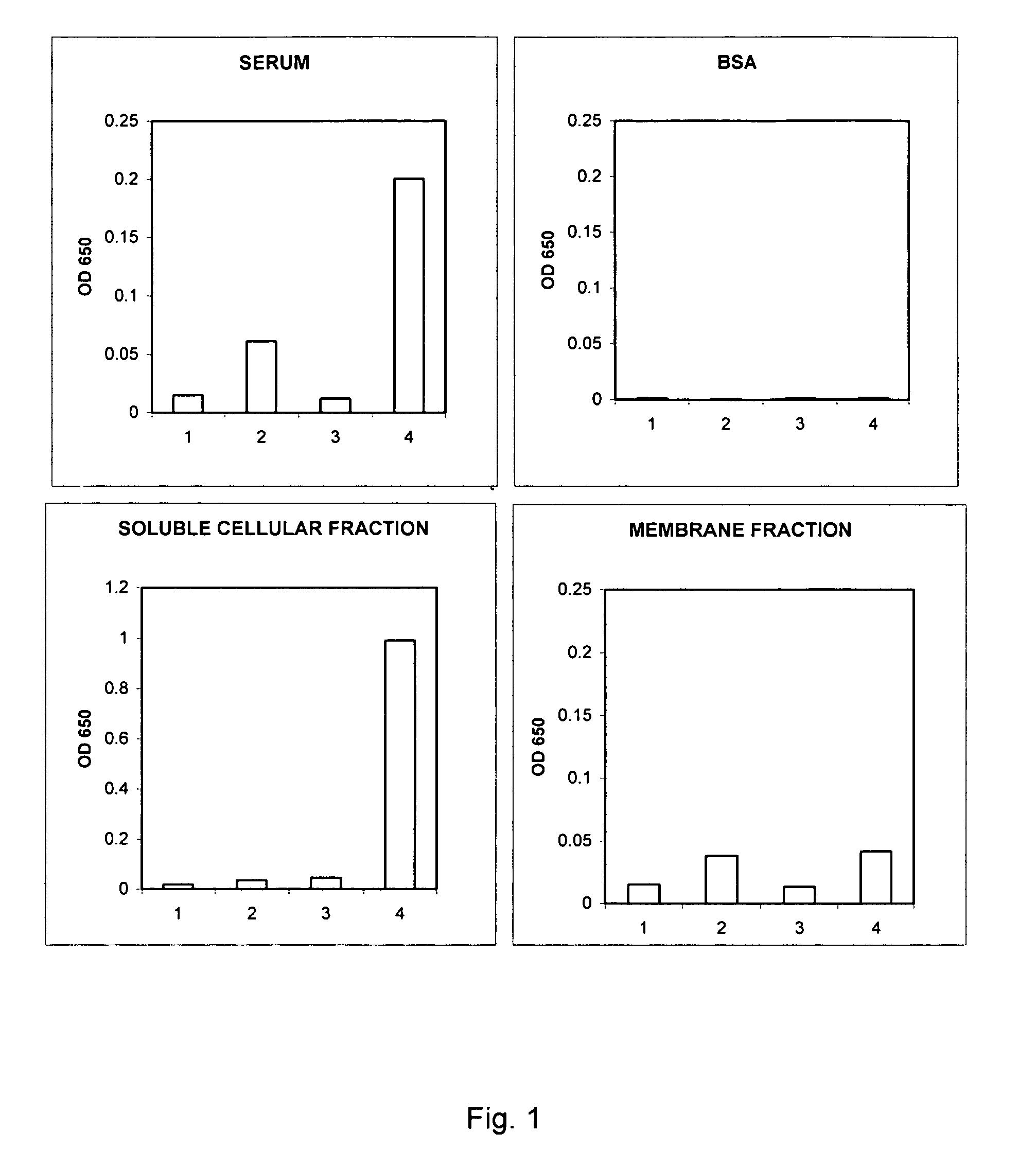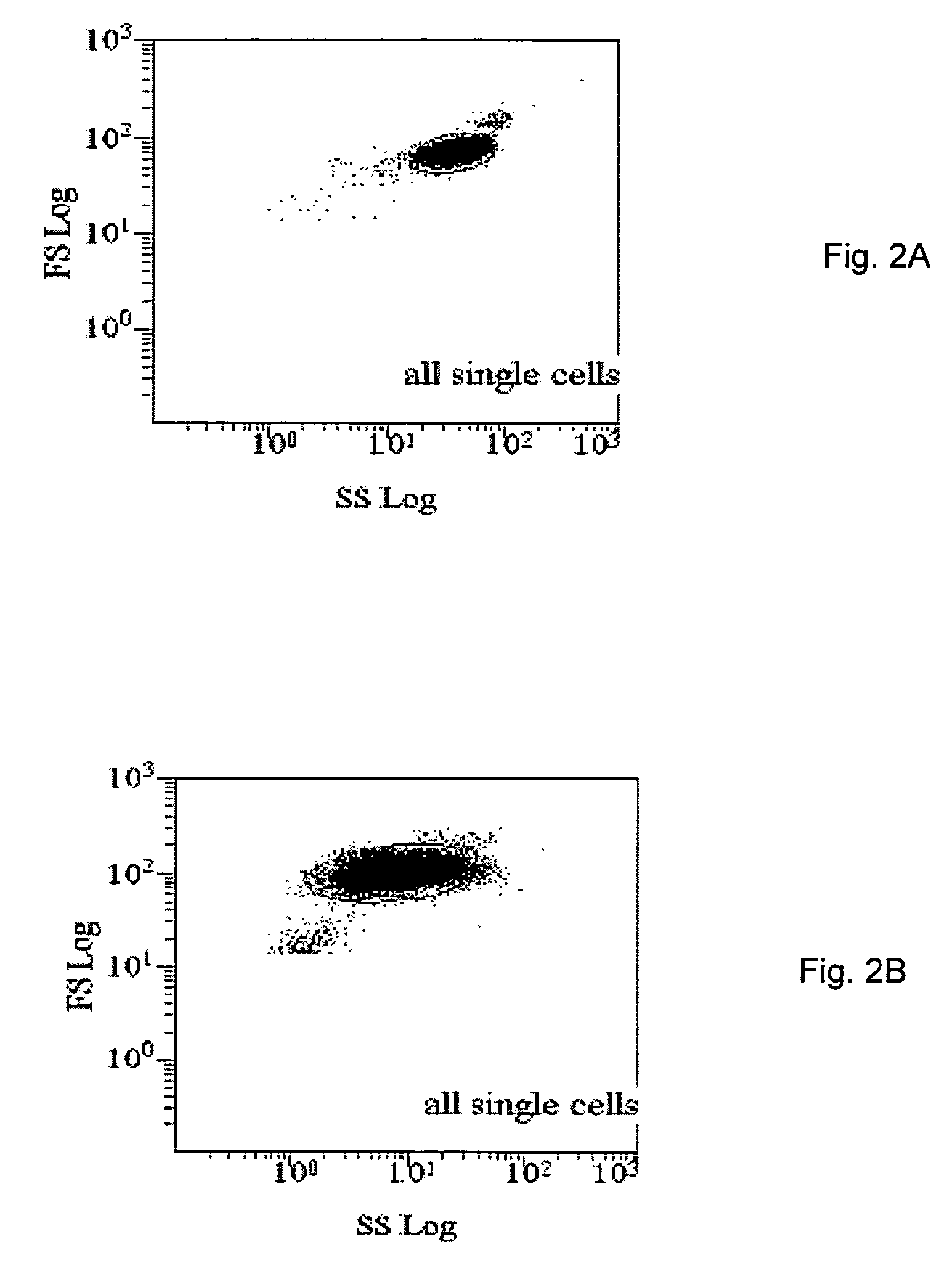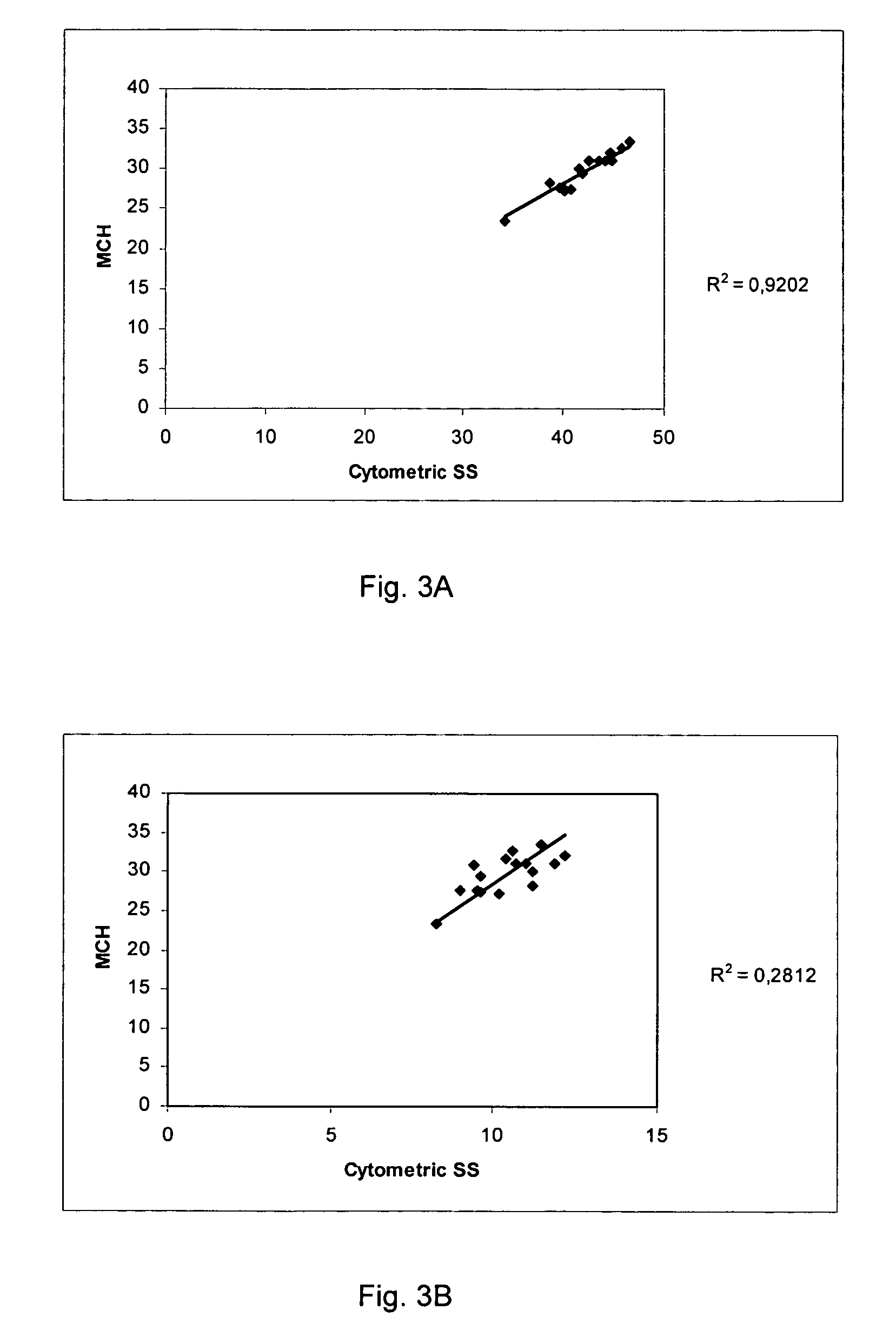Method of measurement of cellular hemoglobin
a technology of cellular hemoglobin and measurement method, which is applied in the field of measuring cellular hemoglobin and hemoglobin, can solve the problems of complex light scatter measurement for determining cellular hemoglobin, unsuitable quantitative measurement of cellular hemoglobin, and potential artifacts, and achieve the effect of inhibiting the reaction of permeation reagents
- Summary
- Abstract
- Description
- Claims
- Application Information
AI Technical Summary
Benefits of technology
Problems solved by technology
Method used
Image
Examples
example 1
Permeation Reagent Compositions
Composition A
[0109]Following permeation reagent composition was prepared:
[0110]
ComponentConcentrationN-lauroyl sarcosine2.3 mMPyrrolidine and HClquantity to adjust pH to 5.3
[0111]More specifically, a stock solution of N-lauroyl sarcosine made first. 1.0 g of N-lauroyl sarcosine (Fluka) was pre-dissolved in 1.5 ml of ethanol (96%). 180 μl of pyrrolidine (Aldrich) was added into 95 ml of deionized water. Then the N-lauroyl sarcosine / ethanol solution was added into the pyrrolidine solution; the pH was adjusted to 5.6 by pyrrolidine and HCl, and the volume was adjusted to 100 ml with deionized water to form the stock solution. The total volume of the reagent is adjusted to 100 ml with deionized water. The permeation reagent composition was prepared by diluting 6.25 ml of the stock solution with deionized water to 100 ml and adjusting pH to 5.3 with pyrrolidine and HCl. The reagent was filtered through a sterile nylon filter of 0.22 μm pore size. The Compos...
example 2
Neutralization Reagent Composition
[0121]An aqueous neutralization reagent was prepared according to the following composition:
[0122]
ComponentConcentrationHEPES40mMSodium chloride0.5MBovine serum albumin0.91mMSodium azide0.03MSodium hydroxidequantity to adjust pH at 7.25
[0123]More specifically, HEPES, sodium chloride, and bovine serum albumin were dissolved in deionized water first. The reagent volume was adjusted to about 60% of the final volume. 1 M sodium hydroxide was added to adjust the pH to 7.0. Sodium azide was added, the volume was adjusted to about 95% of the final volume and the pH was further adjusted with 1 M sodium hydroxide to 7.25. The reagent volume was adjusted to the final volume and the reagent was filtered through a sterile nylon filter of 0.22 μm pore size. The reagent had an osmolality of 1,095 mOsm / Kg H2O.
example 3
Fixation Reagent Composition
[0124]An aqueous fixation reagent was prepared according to the following composition:
[0125]
ComponentConcentrationSodium chloride155mMDisodium hydrogen phosphate dihydrate40mMFormaldehyde0.62MBoric acid180mMEGTA10mMDextrane sulfate (MW 500.000)0.016μM
[0126]More specifically, the components were dissolved in deionized water at about 90% of the final volume. The pH was adjusted to 7.1 using 1 M sodium hydroxide or 1 M hydrochloric acid. The reagent volume was adjusted to the final volume and the reagent was filtered through a sterile nylon filter of 0.22 μm pore size. The reagent had an osmolality of 1,348 mOsm / Kg H2O.
PUM
| Property | Measurement | Unit |
|---|---|---|
| conductivity | aaaaa | aaaaa |
| conductivity | aaaaa | aaaaa |
| conductivity | aaaaa | aaaaa |
Abstract
Description
Claims
Application Information
 Login to View More
Login to View More - R&D
- Intellectual Property
- Life Sciences
- Materials
- Tech Scout
- Unparalleled Data Quality
- Higher Quality Content
- 60% Fewer Hallucinations
Browse by: Latest US Patents, China's latest patents, Technical Efficacy Thesaurus, Application Domain, Technology Topic, Popular Technical Reports.
© 2025 PatSnap. All rights reserved.Legal|Privacy policy|Modern Slavery Act Transparency Statement|Sitemap|About US| Contact US: help@patsnap.com



